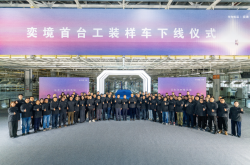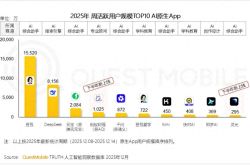Variable aperture and telescopic modules have achieved continuous mass production, and a large number of manufacturers may follow up later
![]() 04/23 2024
04/23 2024
![]() 744
744
Recently, supply chain company O-film disclosed its latest progress in the camera module field to the outside world. The company has achieved continuous mass production of multiple technologies, including floating macro modules, periscope telephoto macro modules, chip anti-shake, variable aperture, and telescopic modules. The successful mass production of these technologies marks the further consolidation of O-film's technological leadership in the camera module field. However, some commentators believe that this will mean that a large number of mobile phone manufacturers will follow up and use new designs such as telescopic modules.

It is understood that O-film's independently developed high-pixel super resolution algorithm and super EIS anti-shake algorithm have reached the industry's top level and are widely praised by customers. The MGL multi-group lens active alignment technology and CMP/GMP miniaturized module packaging technology are also under continuous iteration. Floating macro modules, periscope telephoto macro modules, chip anti-shake, variable aperture, and telescopic modules have achieved continuous mass production. The 10x continuous zoom technology has completed the technical breakthrough and is actively studying advanced module and process technologies such as lens & VCM (voice coil motor) & module process integration, process integration, and design integration.
Currently, O-film has successfully achieved mass production in high-end product areas such as 7P optical lenses, periscope telephoto lenses, dual-group internal focusing lenses, and variable aperture lenses, and has successfully entered the supply chain of domestic mainstream mobile phone manufacturers. While maintaining technological innovation, the company has also successfully developed cutting-edge lens projects such as 8P high-pixel main cameras, three-group continuous zoom, and glass-plastic hybrids.

It is worth mentioning that O-film once provided camera modules and other products for Apple's iPhone and other devices, but was later removed from Apple's supply chain due to various reasons. Coupled with Huawei's restrictions, it suffered a net loss of 4.1 billion to 5.2 billion yuan for the full year of 2022. However, in 2023, the company suddenly turned a profit, with revenue increasing by 13.73% year-on-year. Many commentators believe that this may be related to the return and popularity of Huawei's Mate 60 series of phones, but O-film's response to this is that "there is a confidentiality agreement and it is inconvenient to answer."
However, regardless, the camera module is one of the key components of smartphones, and its performance directly affects the user's photography experience. With the continuous maturity and mass production of O-film's technology, more manufacturers may follow up and adopt these advanced camera module technologies, adding new vitality to the increasingly "convoluted" smartphone market and bringing better products to consumers, which is worth looking forward to.






